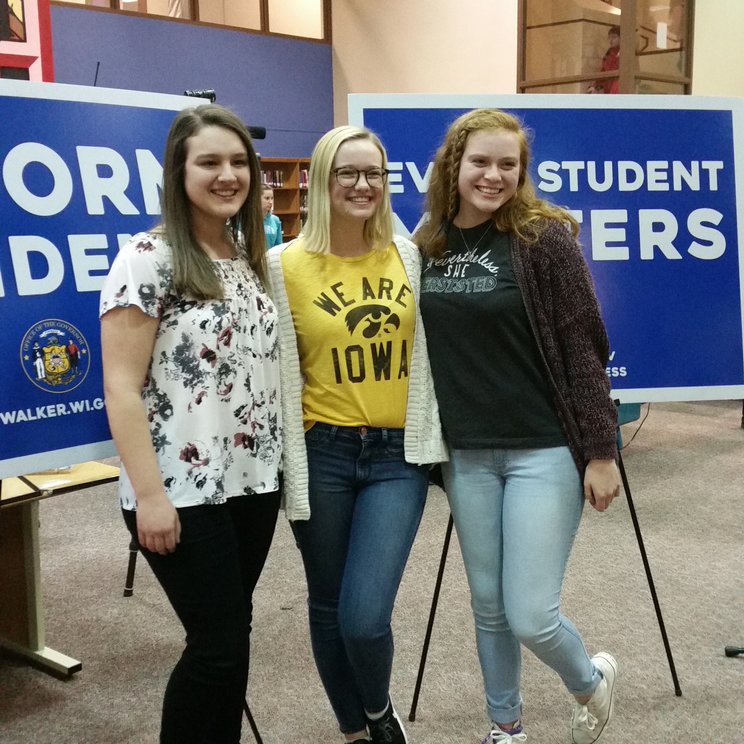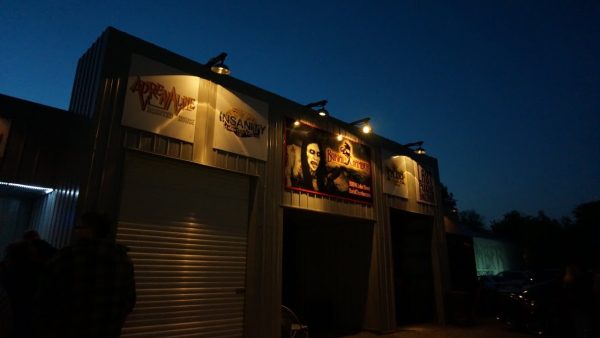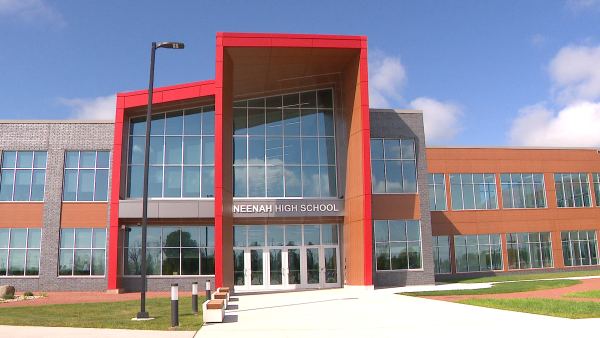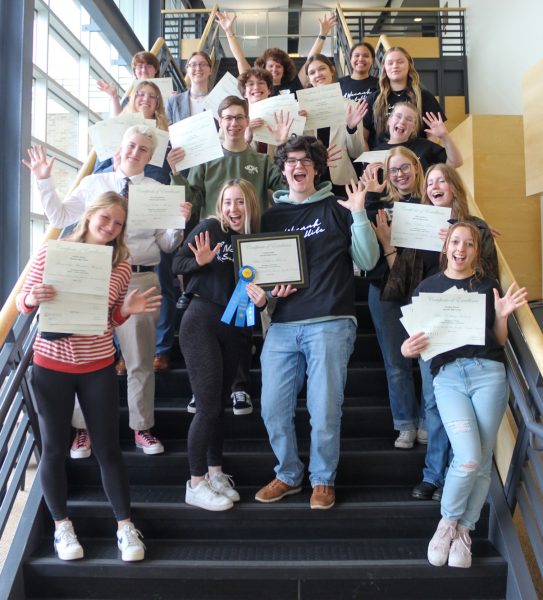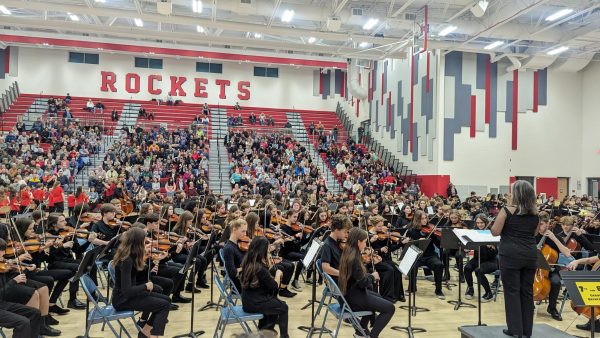Gov. Scott Walker Discusses Budget Plans with Students and Community Members
Photo by: Charley Hrobsky
Lydia Engelbreth, Callie Hauerwas, and Beatrice Padgham asked the questions during Gov. Scott Walker’s visit to NHS.
The Wisconsin governor visited the halls of NHS on April 13 to discuss his proposed budget plans for K-12 education with those the budget would affect directly: the students and staff members of NHS.
Gov. Scott Walker (Rep.) began his tour of NHS with art students explaining various art exhibits throughout the high school, such as the veterans’ memorial, according to Walker. He also received a brief performance by two quartets from an orchestra class before heading into the ARC 30 minutes after select students and media arrived. Students from Race, Rights, and Transcultural Beliefs class taught by Mrs. Barb Jirikowic as well as Mr. Bruce Moriarty’s Leadership class represented a small portion of the students at NHS along with community business members and youth apprenticeship students.
While students expected Walker to discuss his budget plans specifically for education, much of the talk revolved around the workforce. He discussed the exciting time for seniors as numerous opportunities open for seniors, and millennials as a whole. Instead of being limited to simply one career, Walker proposed the idea of the millennial generation having “four or five careers.”
The discussion of his proposed K-12 education budget started in the final five minutes of Walker’s talk. Walker recalled the frozen tuition for the past four years at University of Wisconsin campuses and compared the Wis. public college system to neighboring states where tuition rates continue to raise at “an 8 percent increase” each year. In the future, Walker hopes to put more money into mental health services to help break the stigma, which is already at work with N.J.S.D.’s mental health coordinator, Dr. Mike Altekruse, as well as placing more money into the technical college system and needs-based financial assistance. He believes these efforts will “invest in building student success” to lead to the “number one thing” the Wis. government has to address: workforce.
With a few minutes left to spare with Gov. Walker’s time directly talking to students in the ARC, he opened the time to three limited questions. Lydia Engelbreth, senior and leader of the Dude. be nice campaign, opened the discussion with the topic of Walker’s proposal of dismissing the mandated hours students are required to be in school. “How are we going to ensure student growth and be successful without these mandated hours,” Engelbrath directly asked. Walker’s main response was his focus on “quality over quantity,” which could be seen with either longer school days or years or in shorter school years. While Wis. would be the first state to repeal a mandated amount of school hours, Walker said Wis. would still require statewide report cards for every school and district.
Callie Hauerwas, senior, asked Walker how he planned to support her as a future teacher, which she believed did not fully get answered. “He skirted around the questions and didn’t actually answer them straight out.” Hauerwas felt a lack of personalization with Walker’s answers filled with facts and statistics.
Finally, Beatrice Padgham, senior and school board student representative, beat other students to the final question in which she asked the governor how long it would take before his $1.2 billion education budget cut in 2011 would be replaced in its entirety. She acknowledged his $640.9 million injunction in the 2017 budget proposal as well. Walker repeated a phrase he stated earlier in his speech, “With this budget, it will be up higher than it has ever been before.” Instead of directly answering the rest of Padgham’s question, Walker moved on to the idea of educators’ health care opportunities to bid out their insurance and save the district money overall.
After shaking hands with the students and community members, Walker took a few minutes to talk with news media in front of the students. Within a few minutes, the governor left the school and much of the heightened security left with him.
Throughout the day, the heightened buzz of Walker’s visit left students and staff distracted from their regular activities to discuss politics and becoming civically engaged.


